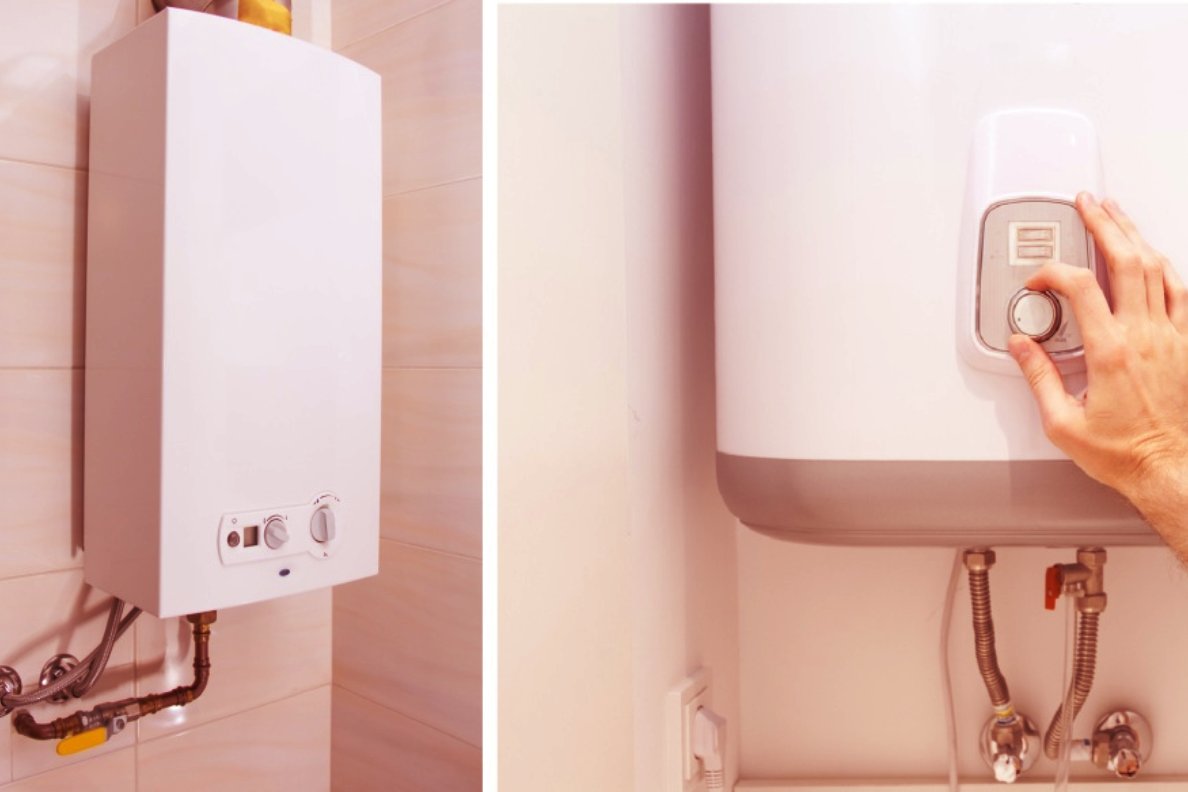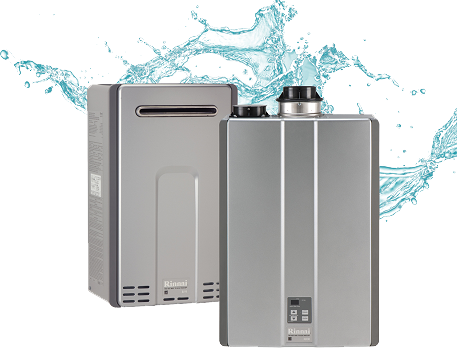Understanding The Real Benefits Of Instant Water Heaters
Understanding The Real Benefits Of Instant Water Heaters
Blog Article
Everyone has got his or her own rationale involving 5 Benefits of Tankless Water Heaters.

In a globe where benefit and performance preponderate, it's not a surprise that property owners are frequently on the lookout for smarter methods to handle their home's energy consumption and convenience. One advancement that has gradually gained appeal is the tankless water heater. Yet exactly what makes these systems stand apart from the conventional tank-based versions most of us matured with? Let's dive in and explore the benefits of tankless water heaters, helping you decide if it's time to make the button in your house.
Introduction
Picture this: you step into the shower after a long day, expecting a soothing cascade of hot water, only to be greeted by icy droplets due to the fact that the last person utilized all of it up. Audio acquainted? Traditional hot water heater store a fixed amount of warm water, meaning you're at the grace of that container's supply. Tankless systems, on the other hand, warmth water as needed. Say goodbye to going out mid-shower, no more wrestling with timetables simply to guarantee warm water is readily available.
Comprehending Tankless Water Heaters
What Are Tankless Water Heaters?
Tankless water heaters, occasionally called on-demand or instant water heaters, give warm water just as it's needed. As opposed to storing gallons of pre-heated water, these systems kick into activity the minute you turn on the faucet. Water goes through a warmth exchanger, warming up in real-time, implying you get a continuous flow of hot water without the requirement for a big container resting lazily by.
How Do They Vary from Conventional Solutions?
Typical heaters hold a storage tank of hot water, using energy to maintain that tank at a regular temperature level. Tankless units remove the standing supply, lowering thrown away energy and the bulky impact of a large cyndrical tube. Basically, you're updating from a "stockpile" frame of mind to a "made-to-order" approach.
Usual Kinds Of Tankless Systems
Tankless hot water heater typically are available in 2 ranges: gas and electrical. Gas designs often tend to deliver higher circulation rates, perfect for bigger families, while electric models often serve smaller sized homes and are typically much easier to install. In addition, some systems are made for point-of-use (offering one fixture) while others can manage the whole home's hot water needs.
Trick Benefits of Tankless Hot Water Heater
1. Endless Warm Water Supply
Ever before needed to set up showers so everyone gets their fair share of hot water? With tankless, that becomes a thing of the past. As long as the heating unit's flow capacity isn't exceeded, you can take back-to-back showers without developing into a popsicle.
2. Energy Performance and Cost Cost Savings
Say goodbye to heating a giant storage tank's well worth of water and keeping it toasty throughout the day. Tankless heating units decrease standby energy losses, which can lower energy expenses. While the preliminary expense may be greater, the long-lasting financial savings commonly warrant the financial investment.
3. Space-Saving Design
If your home is short on storage, removing the large container frees up valuable space. Tankless systems are small and can typically be mounted on wall surfaces, concealed in corners, or set up in limited energy closets without gobbling up the entire area.
4. Longer Lifespan
A well-maintained tankless water heater can outlast its tank-based cousin. Conventional tanks may last 10-15 years, while tankless designs can maintain chugging along for 20 years or more, making them a strong financial investment over time.
5. Improved Water Top Quality
Storing water in a container can occasionally result in sediment accumulation or a somewhat "off" preference. With tankless systems, fresh water is warmed right away, minimizing the opportunities of sediment accumulation and potentially providing cleaner-tasting water.
Factors to consider Before Switching
Though the benefits are compelling, it's important to think about a few variables prior to completely dedicating.
Initial Investment Costs
Tankless heaters generally include a higher upfront price tag. Between the system itself and possible installment modifications, the first cost may give you sticker shock. Yet bear in mind to watch it as a lasting financial investment.
Installation Demands
Depending on your home's facilities, you may require additional electric capability or gas line upgrades. Ensure you recognize the installment demands and seek advice from an expert to stay clear of shocks.
Assessing Your Home's Water Use Patterns
If your home simultaneously utilizes several fixtures with high hot water demand, make sure the unit's flow price meets your requirements. Knowing your usage patterns aids you select the right dimension and kind of tankless heating unit.
Maintenance and Care Tips
Tankless systems are relatively low maintenance, yet they aren't set-it-and-forget-it appliances.
Normal Cleaning and Descaling
Hard water minerals can develop in the warmth exchanger, affecting performance. Routine descaling (typically recommended each year) keeps the system going for peak performance.
Yearly Expert Evaluations
A yearly checkup from an expert makes sure small concerns are captured early. They'll evaluate the unit's performance, seek leakages, and help keep ideal performance.
Guaranteeing Proper Ventilation
For gas versions, appropriate air flow is essential to safely eliminate exhaust gases. Ensure airing vent systems are clean and appropriately installed to avoid any possible safety and security risks.
Contrasting Different Brands and Designs
Not all tankless water heaters are developed equal.
Researching Trusted Makers
Look for trusted brand names with a background of generating top quality systems. A dependable supplier usually offers far better client support and longer service warranties.
Reading Testimonials and Individual Comments
User reviews and responses from next-door neighbors or buddies that have gone tankless can offer beneficial understandings. Often, real-life experiences can be much more informing than advertising pamphlets.
Installation: DIY or Expert?
While some property owners enjoy dealing with projects themselves, tankless setup might not be the best time to burst out the tool kit.
Benefits and drawbacks of Do It Yourself Installment
A DIY install can conserve money, but it features risks. Wrong installation can bring about ineffectiveness or safety concerns. If you're handy and have experience, it could be practical-- but proceed with caution.
When to Call a Professional Plumbing Technician
For a lot of, calling a pro makes sure everything's done properly. A professional plumbing professional comprehends neighborhood codes, sizing demands, and airing vent criteria, decreasing the threat of incidents.
Making the most of Effectiveness
You've purchased a tankless system-- now optimize its effectiveness.
Ideal Temperature Level Setups
Most people establish their systems in between 120-140 F. Changing the temperature level can enhance convenience and financial savings. Experiment to find a sweet area that does not waste energy.
Pairing with Low-Flow Fixtures
Intend to extend your device's abilities? Take into consideration setting up low-flow showerheads and taps. They decrease water usage, allowing your tankless system to deliver a constant stream of warm water without straining.
Environmental Influence
Tankless hot water heater line up with greener living objectives.
Lowered Carbon Impact
By using less energy and just heating water as required, tankless systems can lower your home's carbon footprint, lowering your environmental effect.
Saving Natural Resources
Much less power consumption and much less lost warm water translate into less natural deposits being made use of, an ecological win-win.
Who Benefits Most from Tankless Heaters?
The charm of tankless heating units is that they can match a variety of homes.
Large Households vs. Solitary Occupants
Huge households might love the unlimited hot water supply, while solitary occupants value the energy financial savings from not warming a whole container for just a single person's morning shower.
Home Owners with Limited Room
If your home is short on square footage, losing the large storage tank maximizes space for other essentials-- or possibly simply a lot more breathing space.
Eco-Conscious Customers
Going tankless aligns with environmentally friendly values, guaranteeing you're not wasting power or resources.
Future Trends in Tankless Water Heaters
The globe of home devices is ever-evolving, and tankless water heaters are no exception.
Smart Home Assimilation
Visualize adjusting your hot water heater's temperature via an application or receiving upkeep signals on your phone. As clever home tech developments, we'll see even more connection and benefit.
Innovations in Innovation
R&D is frequently boosting heat exchangers, making devices much more reliable and sturdy. Future models might be also quieter, much more small, and better fit for varying environments.
Conclusion
Choosing a tankless water heater is more than simply upgrading your home's hot water system; it's purchasing long-lasting comfort, energy performance, and a greener lifestyle. By considering your family's water use, being mindful of setup demands, and dedicating to normal maintenance, you can enjoy a consistent stream of warm water without the luggage of a bulky container. As technology evolves, you can eagerly anticipate even smarter, more reliable tankless solutions that not only make your life simpler yet likewise profit the earth.
Why You Should Consider a Tankless Water Heater for Your Home
Energy Efficiency and Cost Savings
Tankless water heaters, also known as on-demand water heaters, heat water only when needed. This means they don't waste energy keeping a tank of water hot constantly. This efficiency translates into substantial cost savings on your monthly energy bills.
Endless Hot Water Supply
One of the significant advantages of tankless water heaters is their ability to provide a continuous supply of hot water. Traditional tank water heaters have a limited capacity and can run out of hot water, especially during peak usage times. In contrast, tankless water heaters can provide an endless stream of hot water, making them ideal for larger families or homes with high water usage.
Space-Saving Design
Tankless water heaters are compact and take up significantly less space compared to traditional tank heaters. They can be installed on walls, under cabinets, or even outside, freeing up valuable space in your home. This makes tankless water heaters a great option for smaller homes or properties with limited space for a traditional water heater.
Longer Lifespan and Lower Maintenance
Tankless water heaters typically have a longer lifespan compared to traditional tank heaters. They can last up to 20 years or more with proper maintenance. Additionally, tankless systems are designed with replaceable parts, which can extend their lifespan further and reduce long-term maintenance costs.
Environmentally Friendly
Reducing energy consumption not only saves you money but also benefits the environment. Tankless water heaters contribute to a smaller carbon footprint by using less energy to heat water. Their energy efficiency and ability to minimize standby heat loss make them an eco-friendly choice for environmentally conscious homeowners.
Customized Temperature Control
Tankless water heaters offer precise temperature control, allowing you to set the desired temperature to meet your specific needs. This level of customization ensures you always have water at the perfect temperature for your comfort and usage requirements.
https://beantownservices.com/blog/consider-tankless-water-heater-for-your-home

I'm just very fascinated with 5 Benefits of Tankless Water Heaters and I am hoping you enjoyed our entry. Remember to take the time to promote this blog entry if you enjoyed it. Many thanks for your time spent reading it.
Request Estimate Report this page